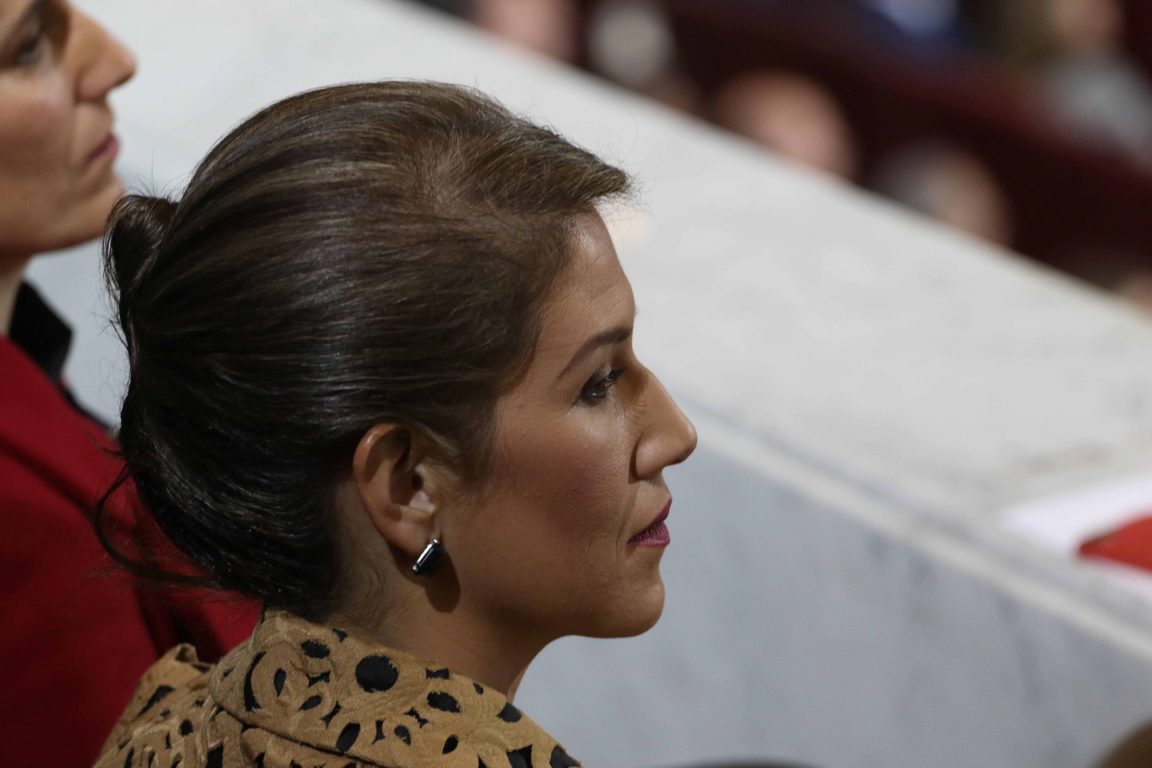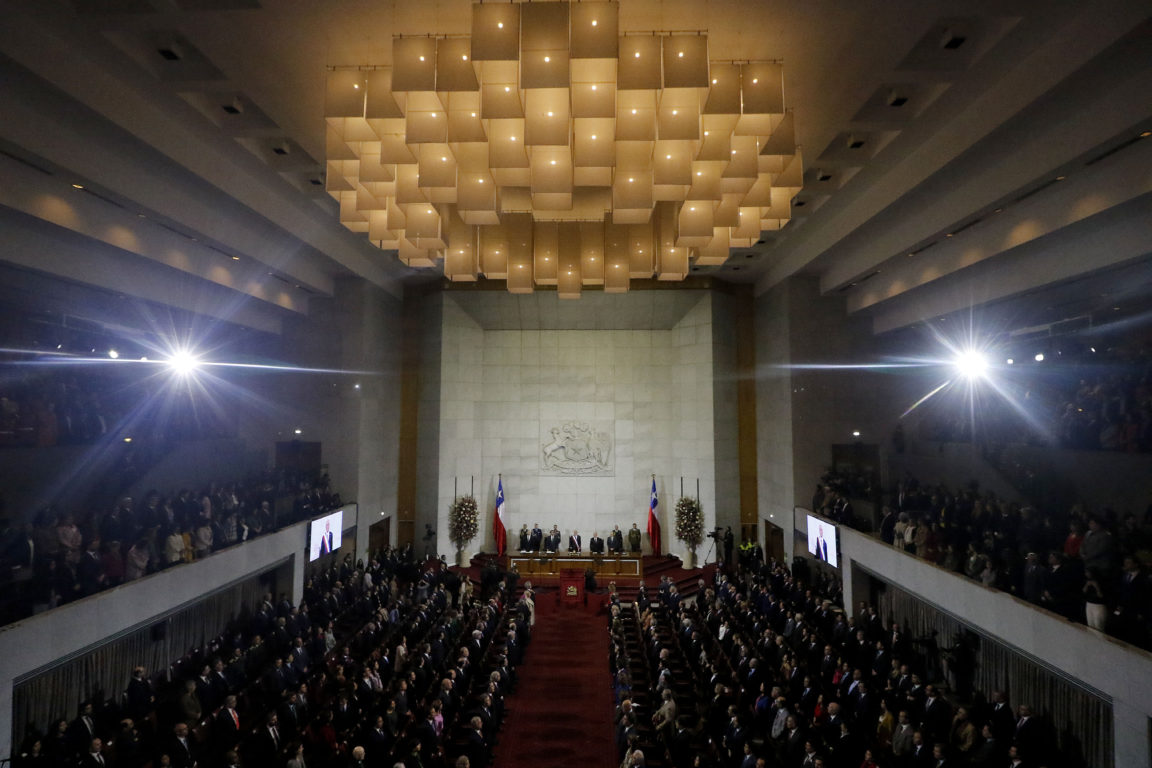President Sebastián Piñera addressed Congress and the nation Saturday night, for 2 hours and 4 minutes, for the second time in his new administration with a speech full of announcements and self-congratulatory remarks.
Among the most important measures, Piñera, a conservative billionaire, announced a bill to reduce the number of representatives in the House from 155 to 120; as well as the number of senators, from 43 to 40.
The idea will also seek to limit the number of times polititians can run for reelection, including majors, and to modernise the way Congress works.
Regarding trade, Piñera stated that the Senate has “the responsibility” of passing the Agreement for Trans-Pacific Partnership (TPP-11), hugely criticised by civil organisations and academics.
Nonetheless, Piñera assured it will safeguard Chile’s interests, that it will allow to explore new markets -despite the fact that the country has celebrated free trade agreements with all the nations involved- and reach 500 million consumers, with benefits for more than three thousand national products.
The US-China trade war was also a part of Piñera’s speech. He admitted that its effects will most likely harm the economy, but still predicted that the GDP expansion should oscillate between 3% and 3.5%.
He highlighted the fact that the country grew 4% in his first year back in La Moneda, more than the results achieved under Michelle Bachelet’s second government (who currently serves as UN Human Rights high commissioner), Latin America as a whole and even the global average.
He also reasserted his stance on the Venezuelan crisis and the controversy surrounding president Nicolás Maduro.
Piñera, a fierce opponent of Maduro’s regime, said that his dictatorship “needs to end with free, transparent and democratic elections”.
The Government invited Juan Guaidó’s diplomatic representative in Chile, Guarequena Gutiérrez, who sat next to one of Mr Piñera’s daughters, Cecilia.
But Venezuela’s ambassador to Chile, Arévalo Méndez, was also in attendance.

The President also announced that Chile’s Fasat-Charlie satellite is going to be replaced with a new unit that will work alongside other stations. It will serve the Armed Forces, the State and the public, Piñera said.
Back on Earth, Piñera promised a National Lithium Policy, crucial in the manufacture of batteries and other devices.
Even though Chile has the largest reserve on the planet, it is not the world’s top producer and many fear it will fall behind while Argentina and Australia work to become the main suppliers.
Perhaps the last major announcement in his long speech regarded transport.
In the following years, Santiago will see how its metro system doubles in length from 150 kilometers to 300 with the addition of four new lines (7, 8, 9 and 10) and the extension of four others.
Outside the capital, the Valparaíso region will also enjoy the extension of its metro system (Merval) from Limache to La Calera.
High-speed trains will also become an option in Valparaíso.
In the south, Concepción, Chile’s second biggest city, should soon see the expansion of its train network (Biotren) to Lota and Penco. Studies for a metro system were also announced by the head of State.
Other announcements regarded the implementation of 5G and the extension of Carretera Austral to link the Aysén and Magallanes regions, in the far south, to the rest of the country through Chilean soil.
For decades, journeys bound north have taken travellers to Argentina, even to this day.
The Government will also encourage, through two separate bills, the creation of the ministries of Housing and Territory as well as that of Agriculture and Food.
The first will result from the combination of the ministries of Housing and National Assets.
The second needs to be created from scratch, but it will include the Undersecretariat for Fisheries and Aquaculture, currently a part of the Ministry of Economy.
Besides, the President promised to present a bill to modernise the Penal Code.
“We will not allow that dangerous felons walk freely on our streets or get out of jail before the victims leave hospital”, Piñera said.
Finally, the President called for a national agreement headed by the Home secretary to “improve and strengthen” public institutions and politics.
Piñera lamented the scandals that have shaken lately, for example, the Justice system, with judges under investigation for different crimes; the Public Prosecutor’s Office, with attorneys filing lawsuits against colleagues; and the Uniformed Armed Police, with over 100 former members facing jail sentences due to a multimillion-dollar embezzlement; just to name a few cases.
Tonight’s speech made history for being the first ever to be delivered and broadcast at night so as to reach “more people”, La Moneda said when they proposed the change.
Piñera is going through a tough time in terms of popularity, so the need to charm the public is crucial to secure a new right-wing administration.
But his approval ratings have dropped for nine consecutive weeks. According to Cadem, only 33% of Chileans value his work.
Disapproval numbers, on the other hand, reached 52% Monday.









